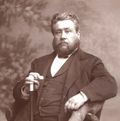And the priest shall make an atonement for the soul that sinneth ignorantly, when he sinneth by ignorance before the LORD, to make an atonement for him; and it shall be forgiven him.(Numbers 15:28)
Ye shall have one law for him that sinneth through ignorance, both for him that is born among the children of Israel, and for the stranger that sojourneth among them.(Numbers 15:29)
But the soul that doeth ought presumptuously, whether he be born in the land, or a stranger, the same reproacheth the LORD; and that soul shall be cut off from among his people.(Numbers 15:30)
Because he hath despised the word of the LORD, and hath broken his commandment, that soul shall utterly be cut off; his iniquity shall be upon him.
And while the children of Israel were in the wilderness, they found a man that gathered sticks upon the sabbath day.(Numbers 15:32)
And they that found him gathering sticks brought him unto Moses and Aaron, and unto all the congregation.(Numbers 15:33)
And they put him in ward, because it was not declared what should be done to him.(Numbers 15:34)
Other publications related to "Numbers 15:31":
Numbers 15:31 - Cross Reference
Whoso despiseth the word shall be destroyed: but he that feareth the commandment shall be rewarded. (Proverbs 13:13)
And if a soul sin, and hear the voice of swearing, and is a witness, whether he hath seen or known of it; if he do not utter it, then he shall bear his iniquity. (Leviticus 5:1)
He therefore that despiseth, despiseth not man, but God, who hath also given unto us his holy Spirit. (1 Thessalonians 4:8)
The soul that sinneth, it shall die. The son shall not bear the iniquity of the father, neither shall the father bear the iniquity of the son: the righteousness of the righteous shall be upon him, and the wickedness of the wicked shall be upon him. (Ezekiel 18:20)
It is time for thee, LORD, to work: for they have made void thy law. (Psalm 119:126)
Wherefore hast thou despised the commandment of the LORD, to do evil in his sight? thou hast killed Uriah the Hittite with the sword, and hast taken his wife to be thy wife, and hast slain him with the sword of the children of Ammon. (2 Samuel 12:9)
For mine iniquities are gone over mine head: as an heavy burden they are too heavy for me. (Psalm 38:4)
All we like sheep have gone astray; we have turned every one to his own way; and the LORD hath laid on him the iniquity of us all. (Isaiah 53:6)
And if ye shall despise my statutes, or if your soul abhor my judgments, so that ye will not do all my commandments, but that ye break my covenant: (Leviticus 26:15)
Who his own self bare our sins in his own body on the tree, that we, being dead to sins, should live unto righteousness: by whose stripes ye were healed. (1 Peter 2:24)
He that despised Moses' law died without mercy under two or three witnesses: (Hebrews 10:28)
Wherefore thus saith the Holy One of Israel, Because ye despise this word, and trust in oppression and perverseness, and stay thereon: (Isaiah 30:12)
The land also shall be left of them, and shall enjoy her sabbaths, while she lieth desolate without them: and they shall accept of the punishment of their iniquity: because, even because they despised my judgments, and because their soul abhorred my statutes. (Leviticus 26:43)
For it had been better for them not to have known the way of righteousness, than, after they have known it, to turn from the holy commandment delivered unto them. (2 Peter 2:21)

